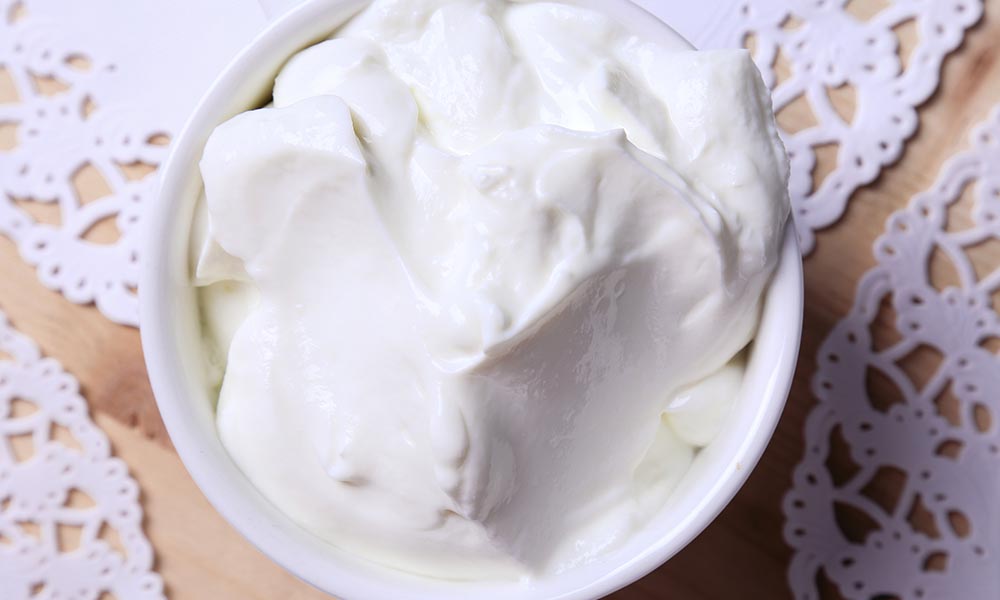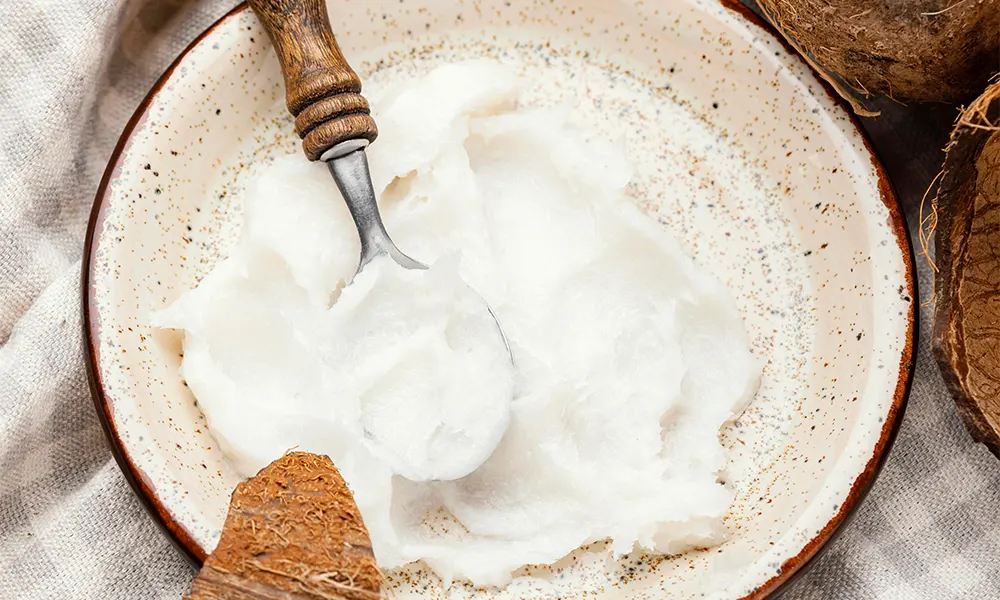How long does Greek yoghurt last? It’s a question many of us have pondered, especially when faced with a half-empty tub lurking at the back of the fridge. The pain point? Wasting perfectly good, delicious Greek yoghurt is heartbreaking, not to mention a hit to the hip pocket! This article dives into the creamy depths of Greek yoghurt storage and longevity, providing you with all the knowledge you need to avoid that frustrating fridge clean-up.
How Long Does Greek Yoghurt Last? The Shelf-Life Scoop
The simple answer to “how long does Greek yoghurt last?” depends on a few crucial factors. Generally, an unopened container of Greek yoghurt, stored properly, will last for the “best before” date printed on the packaging. After opening, however, things change a tad. Most opened tubs of Greek yoghurt will stay fresh in the fridge for about a week, maybe a bit longer, but it’s best to err on the side of caution. To answer the question definitively, how long does Greek yoghurt last after opening? About 5-7 days is optimal.
Factors Affecting Greek Yoghurt’s Lifespan
Several things can impact how long your Greek yoghurt maintains its peak deliciousness. These include:
- Storage Temperature: Keeping your Greek yoghurt consistently cold, ideally at or below 4°C, is paramount. A fluctuating fridge temperature can accelerate spoilage.
- Packaging: Is your Greek yoghurt in a plastic container or a glass jar? Plastic is more likely to harbour bacteria, so glass is generally preferred for longer storage.
- Type of Yoghurt: Full-fat Greek yoghurts tend to last a bit longer than low-fat varieties. This is because the fat content acts as a natural preservative.
- Additives: Greek yoghurts containing preservatives or stabilisers will naturally have a longer shelf life. However, consider the impact of additives on your health if you’re particularly sensitive to such additions.
So, how long does Greek yoghurt last in various conditions? With proper storage and care, you can maximise its freshness for several days.
Spotting Spoilage: Signs Your Yoghurt Has Gone Off
Trust your senses! A few telltale signs will let you know your Greek yoghurt has reached the end of its life. How long does Greek yoghurt last after these signs appear? The answer is: not at all! Don’t even think about it!
- Off Odour: A sour, unpleasant smell is the clearest indicator. If it smells anything but slightly tangy and fresh, it’s time to toss it.
- Unusual Texture: If your Greek yoghurt is excessively watery, lumpy, or has separated significantly, it’s likely spoiled.
- Mould: Any visible mould, regardless of colour or size, means the yoghurt has gone bad. Dispose of it immediately.
- Changes in Colour: Significant changes in the colour of your Greek yoghurt could also be a sign that something isn’t quite right. This is not always the case, but a dramatic change warrants caution.
Once you see these signs, you need to ask yourself, how long does Greek yoghurt last in this condition? Not long, and it’s best to discard it.
Extending the Life of Your Greek Yoghurt: Top Tips
So, how long does Greek yoghurt last and how do you get the most out of it? Here are some practical tips to maximise its freshness:
- Proper Storage: Always store your Greek yoghurt in the coldest part of your fridge. The door, where temperature fluctuates, is not ideal.
- Airtight Seal: Ensure the container is tightly sealed after each use to prevent air exposure and bacterial growth. Using a spatula instead of a spoon also helps reduce the amount of air exposure.
- Use a Clean Spoon: A dirty spoon introduces bacteria, shortening your yoghurt’s life. Always use a clean utensil when scooping out your Greek yoghurt.
- Portioning: If you don’t plan on eating a whole tub quickly, consider portioning it into smaller containers for easier consumption and reduced waste.
- Freezing: Greek yoghurt can be frozen, though the texture might change slightly after thawing. It’s best used in smoothies or baking after freezing.
For a simple answer to how long does Greek yoghurt last once frozen? About 1-2 months, but its texture may change after thawing.
Conclusion
Understanding how long Greek yoghurt lasts is key to enjoying it at its best. By storing it properly, monitoring for signs of spoilage, and following these tips, you can ensure that your yoghurt stays fresh for as long as possible. Whether you’re enjoying it as a snack, part of a recipe, or as a post-workout treat, knowing how long does Greek yoghurt last can help you get the most out of every tub.
If you need more expert tips or have any questions, don’t hesitate to reach out to Yo Hayo. We’re here to help with all your food storage queries! Contact Us For more tips and information.
FAQs
-
How long does Greek yoghurt last after the best-before date?
Greek yoghurt can last for a few days to a week beyond its best-before date if stored properly in the fridge. However, the quality of the yoghurt—both in terms of texture and taste—may begin to decline. It’s essential to use your senses to determine if it’s still safe to eat. If the yoghurt smells sour, has an off taste, or has noticeable mould, it should be discarded. Always check for any changes in colour or consistency, as these can be indicators that the yoghurt is no longer fresh.
-
Can I still eat Greek yoghurt if it’s slightly sour but doesn’t smell bad?
Greek yoghurt can naturally be tangy, but if it tastes slightly sour, it may still be safe to eat as long as the yoghurt doesn’t have an off smell or visible mould. However, if the sourness is more intense than usual or it has a very pungent taste, it’s best to discard it. Over time, as Greek yoghurt ages, the taste will change, but unless the yoghurt has a strong, unpleasant sourness or signs of spoilage, it might still be good to eat. Always rely on your senses to judge freshness.
-
What happens if I eat spoiled Greek yoghurt?
Eating spoiled Greek yoghurt can cause foodborne illnesses such as food poisoning. Symptoms may include nausea, vomiting, stomach cramps, and diarrhoea. These issues arise because spoiled yoghurt contains harmful bacteria that multiply as it goes bad. If you consume yoghurt that’s past its prime, the bacteria may cause discomfort and digestive problems. Even if it doesn’t seem to look or smell off, if the yoghurt is past its expiry date, it’s safer to avoid eating it. Always check for signs of spoilage to ensure your yoghurt is safe to consume.
-
How long does Greek yoghurt last when left out of the fridge?
Greek yoghurt should never be left out of the fridge for more than 2 hours. At room temperature, it begins to spoil rapidly, especially if the environment is warm. The longer it sits unrefrigerated, the higher the chances of harmful bacterial growth, which can make the yoghurt unsafe to eat. In hot weather, this time limit reduces even further. To avoid foodborne illnesses, always ensure Greek yoghurt is stored in the fridge at or below 4°C. If it’s been left out for more than 2 hours, it’s better to discard it for safety.
-
Can I refreeze Greek yoghurt after it’s been thawed?
Refreezing Greek yoghurt is not recommended, as it can cause significant changes in texture and consistency. When Greek yoghurt is thawed, the water separates, and the yoghurt can become runny and less creamy. Refreezing it causes further breakdown, which can result in an unpleasant texture. If you’ve already thawed Greek yoghurt, it’s best to consume it within a few days. Thawed yoghurt is ideal for smoothies, baking, or cooking, but it’s not suitable for re-freezing. For the best texture and taste, always consume thawed yoghurt within a short period after defrosting.





